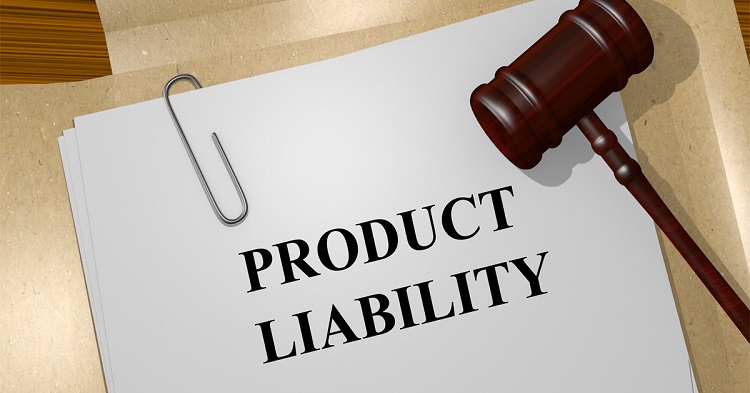Product design plays a crucial role in creating safe and effective products for consumers. However, when a product is poorly designed or contains defects, it can become a serious safety hazard for users. In this article, we will explore the dangers of defective product designs and the potential consequences they can have on individuals and society as a whole. Understanding these risks is essential for both manufacturers and consumers to ensure that proper measures are taken to prevent harm caused by faulty product designs.
Table of Contents
What Causes Defective Products?
There are several factors that can contribute to a defective product design. Some of the most common causes include:
- Lack of testing and quality control during the design process
- Rushed or inadequate research and development phase
- Inadequate communication between designers, engineers, and manufacturers
- Use of substandard materials or components in the manufacturing process
These issues can arise due to various reasons such as budget constraints, time pressure, or simply human error. However, regardless of the cause, it is important for companies to prioritize safety and thoroughly review their product designs before releasing them to the market.
Risks Posed by Defective Product Designs
Defective product designs can pose significant risks to consumers’ health and safety. These risks may vary depending on the type of product and its intended use, but some common dangers include:
- Physical injuries such as cuts, burns, or fractures caused by malfunctioning parts or sharp edges
- Illnesses or health complications resulting from exposure to toxic materials or chemicals used in the product
- Electrical shocks or fires due to faulty wiring or inadequate insulation
Aside from physical harm, defective products can also have financial and emotional impacts on consumers. For example, if a product causes damage to personal property or results in loss of income due to injury, it can lead to financial strain and stress for individuals and their families.
The Problem with Defective Product Designs
One of the main dangers of defective product designs is the risk of injury or even death for consumers. When a product is not designed properly, it may malfunction or break in a way that can cause harm to the user. For example, a poorly designed car seat may fail in a car accident, leading to serious injuries or fatalities for the occupants. This danger is heightened when products are used in high-risk situations such as medical devices or safety equipment.
Consequences for Manufacturers
When a defective product design leads to harm, manufacturers may face legal consequences in addition to potential financial losses. In some cases, they may be held liable for damages and injuries caused by their products, resulting in costly lawsuits and damage to their reputation. Furthermore, a product recall or negative media coverage can also have long-lasting effects on a company’s brand image and consumer trust.
Expensive Litigations for the Manufacturer
Furthermore, the aftermath of a defective product design can also have significant financial implications for both the manufacturer and the injured parties. Lawsuits, medical expenses, and recalls are just some of the costs that companies may face when their products have been deemed unsafe due to design defects. Kennedy, Robbins, Yarbro & Henson, LC is a personal injury law firm that you can get assistance from in the case you become a victim of defective products. On the other hand, individuals who have suffered harm from these products may face high medical bills, lost wages, and long-term physical or emotional damages.
Importance of Addressing Defective Product Designs
Addressing the issue of defective product designs is crucial for ensuring the safety and well-being of consumers. Manufacturers must prioritize thorough testing and quality control measures during the design process to identify and rectify any potential flaws before products are released to the market. Additionally, companies should prioritize open communication between all parties involved in the design and manufacturing process to address any concerns or issues promptly. Consumers also play a significant role in addressing this problem by reporting any defects or safety hazards they encounter while using a product.
The consequences of ignoring defective product designs can be severe. In addition to the potential harm and suffering inflicted upon consumers, companies may face legal action and damage to their reputation. Furthermore, the financial impact can be significant as companies may face high medical bills, lost wages, and long-term physical or emotional damages. These costs not only affect the company but also consumers who end up paying for these expenses through higher prices for goods and services.
By addressing defective product designs proactively, manufacturers can prevent potential harm to their customers and avoid costly repercussions. This includes conducting thorough risk assessments and implementing strict quality control measures throughout the design process. Companies should also prioritize continuous evaluation and improvement of their products to identify any potential hazards and make necessary changes. Additionally, proper labeling and clear instructions for use can also reduce the risk of accidents or injuries caused by product misuse.
Potential Dangers
Another concern with defective product designs is their potential impact on society as a whole. When large quantities of faulty products are released into the market, it can lead to widespread harm and financial losses for both individuals and businesses. This was seen in cases such as the Takata airbag recall, which affected millions of vehicles and resulted in numerous injuries and deaths. In addition, defective product designs can also damage a company’s reputation, leading to loss of trust and credibility among consumers.
Taking Things into Consideration
It is important to note that not all product defects are intentional or malicious. There can be various factors that contribute to faulty designs such as inadequate testing, rushed production timelines, or lack of proper safety regulations. However, this does not diminish the potential risks and consequences that defective product designs can have on individuals and society.
It is crucial for manufacturers to prioritize proper product design and testing to ensure the safety of consumers. At the same time, consumers should also be aware of the potential dangers posed by defective products and take necessary precautions when using them. By understanding the gravity of these risks, we can work towards creating a safer marketplace for all. So, it is essential for both parties to collaborate and hold each other accountable in order to prevent harm caused by defective product designs. Remember, your actions today could save someone from serious injury or even loss of life in the future.













Comments